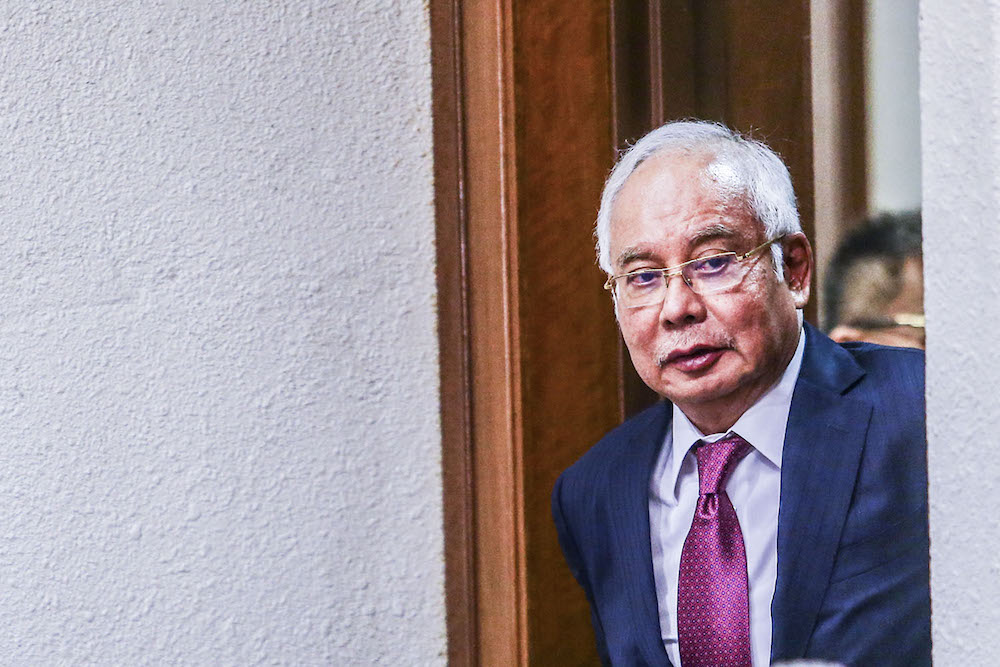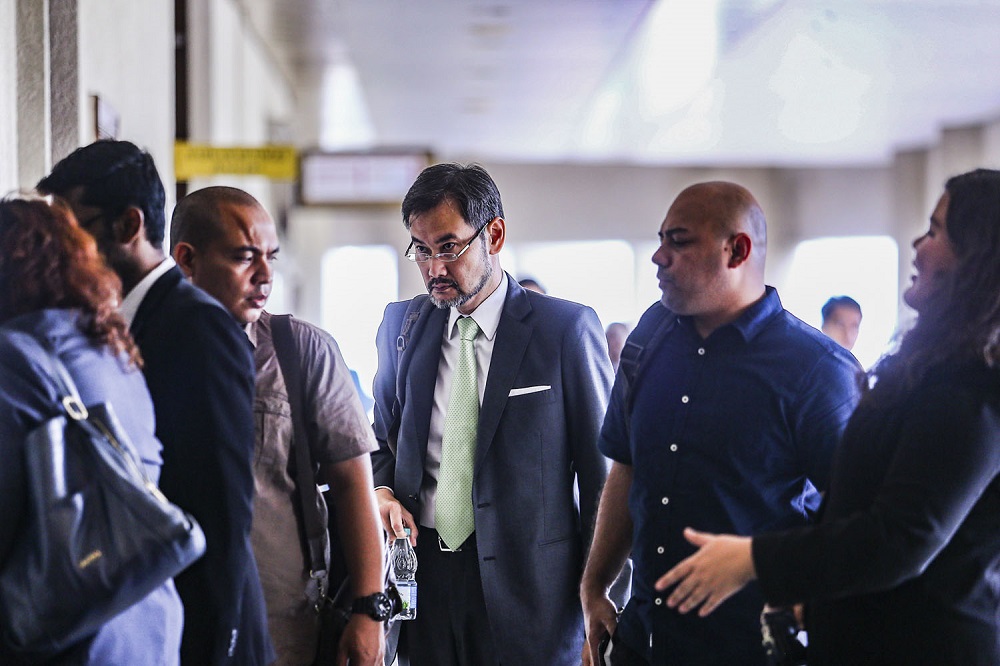KUALA LUMPUR, Sept 24 — Datuk Seri Najib Razak was the one with ultimate power to make key financial decisions in 1Malaysia Development Berhad (1MDB) as the chairman of its board of advisers, and cannot push the blame for the company’s missing money on the advisers, the High Court heard today.
Testifying against Najib in his ongoing corruption trial over 1MDB money, the fund’s former chief executive Datuk Shahrol Azral Ibrahim Halmi disagreed with the idea that the company’s board of advisers were to be blamed for the missing funds.
Lead prosecutor Datuk Seri Gopal Sri Ram had asked Shahrol for his response to Najib’s claim: “The accused says that if anything went wrong with 1MDB, it will fall on board of advisers for not advising him properly. Money went missing in 1MDB, it’s all the fault of board of advisers.”
Shahrol replied: “According to the Articles of Association, the board and management must have taken approval from the prime minister for any investment decisions and even any appointments to board of advisers and board of directors.
“Therefore everything that we do as far as board and management are concerned would be in alignment of wishes of shareholders, the prime minister, the finance minister and chairman of the board of advisers,” Shahrol said.
When Sri Ram again asked for his response to Najib’s assertion, Shahrol said he disagreed.

How Najib became the ‘ultimate power’
Shahrol today explained how Najib became the ultimate decision-maker in 1MDB, citing several changes to the company’s constitution in 2009 that enhanced Najib’s powers as then prime minister of Malaysia.
The changes to 1MDB’s company constitution were carried out after the federal government took over the Terengganu government’s Terengganu Investment Authority Berhad (TIA) and renamed it as 1MDB.
Shahrol today listed the changes to 1MDB’s memorandum and articles of association (M&A) or company changes on August 11, 2009 as part of the Minister of Finance (MOF) Incorporated’s takeover of TIA, namely Articles 68, 93 and 117.
Article 68 states that any appointment and removal of any 1MDB directors cannot be formalised without the prime minister’s prior written approval, while Article 93 provides for a 1MDB board of advisers for with each adviser to be appointed by the board of advisers’ chairman which is also the prime minister, Shahrol said.
Article 117 states that the prime minister’s prior written approval is required for any amendments to 1MDB’s M&A; any appointment and removal of any 1MDB director or senior management; any financial commitment including investments, restructuring or any other matter likely to affect the federal government’s guarantee for the company or to affect national interest, national security or government policy.
“About Datuk Seri Najib’s powers in TIA and 1MDB, as far as my knowledge as CEO and checks with the company secretary, I can say that Datuk Seri Najib as the prime minister is the highest decision-maker or ultimate power in making decisions especially involving big investments, funds and national interest.
“This is in line with the M&A’s Article 117 which decided any such action needs the written approval from the prime minister which is Datuk Seri Najib,” Shahrol said.
Shahrol said that 1MDB’s board of directors were required to always report and seek Najib’s views before any major decisions, adding that he would seek Low Taek Jho’s views as TIA and 1MDB’s unofficial adviser to enable the latter to seek advice from Najib for further action.
Shahrol described the three hats that Najib wore, where as prime minister he would appoint and remove directors and senior management of 1MDB, while he was also the sole shareholder of 1MDB and MOF Inc’s interest in 1MDB as the finance minister, and that he also appoints and chairs the board of advisers.
When asked by Sri Ram, Shahrol confirmed that Najib had participated in 1MDB matters by signing shareholder’s resolutions.
Sri Ram also asked “To your knowledge, did the accused at any time raise any questions about Article 117”, to which Shahrol replied “no”.
Najib’s ongoing 1MDB trial involves 25 criminal charges — four counts of abusing his position for his own financial benefit totalling almost RM2.3 billion allegedly originating from 1MDB and the resulting 21 counts of money-laundering.




















